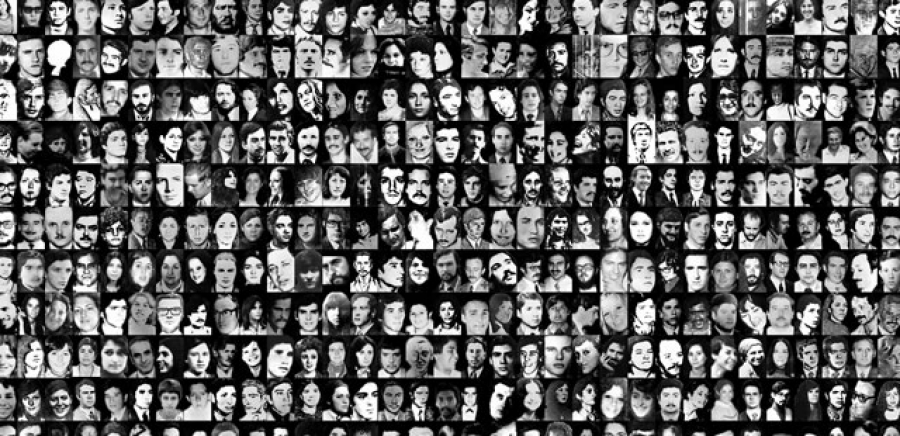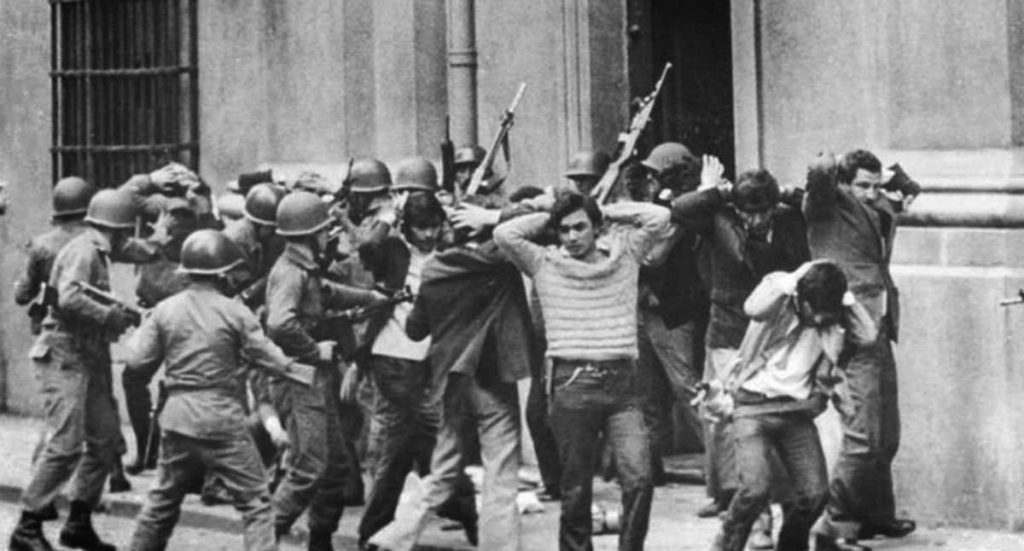
My mom’s family is Chilean. I lived there for four years, and relatively recently, they had a harsh dictator, therefore I wanted to write about it.
Let me start with a little history. Chile is a country located in South America. An interesting fact about Chile is that it has the largest Palestinian population outside the Middle East. The country has a population of around 19 million people, and its capital city is Santiago, where I lived for four years. Chile is known for its stunning landscapes, including the Atacama Desert, the Andes Mountains, the Patagonia, and the beautiful coastline.

Augusto Pinochet was a Chilean general and politician who served as the President of Chile from 1973 until 1990, following a military coup that overthrew the democratically-elected government of Salvador Allende. Pinochet’s regime was characterized by human rights violations, including torture, disappearances, and extrajudicial killings. He also implemented economic policies that led to the privatization of many industries in Chile and a concentration of wealth among a small elite. Pinochet’s legacy is controversial, with some viewing him as a strong leader who saved Chile from communism, while others see him as a brutal dictator who committed numerous atrocities.
I know people whose parents or friends disappeared during Pinochet’s regime. They are called “Los Desaparecidos” in Chile. The term refers to people who were forcibly disappeared during Pinochet’s regime. These were individuals who were suspected of opposing or threatening the government, including left-wing activists, labor union leaders, and students. The disappearances were carried out by government security forces, including the Chilean military, police, and intelligence agencies. The victims were typically abducted from their homes or workplaces, taken to secret detention centers, and subjected to torture and other forms of mistreatment. Many were never seen again, while others were later found dead, often with signs of torture and mutilation.
The number of desaparecidos in Chile is estimated to be around 3,000, although the exact number is difficult to determine due to the secrecy and brutality of the regime. The families of these victims continue to seek justice and accountability, and their stories serve as a reminder of the human cost of political repression and authoritarianism.
Here is a link where you can find people who are still searching for their missing family and friends: https://afdd.cl/.

There are many stories of individuals who were disappeared during Pinochet’s regime, each one a tragic reminder of the brutality and human rights violations of that time. One of the most well-known cases is that of singer Victor Jara.
Victor Jara was a popular Chilean folk singer and activist who was arrested and taken to the National Stadium in Santiago following the military coup in 1973. There, he was tortured and brutally beaten in front of other detainees, including his wife. His hands were broken, and he was shot multiple times. His body was later found on a street in Santiago, bearing signs of torture.
Jara’s music had been popular among left-wing and progressive movements in Chile, and his death became a symbol of the violence and repression of the Pinochet regime. His legacy lives on through his music, which continues to inspire social justice movements around the world.
The story of Victor Jara and other desaparecidos serves as a reminder of the importance of protecting human rights and preserving democracy and of the devastating impact of political repression and authoritarianism.
In 1978, a group of Jewish businessmen were kidnapped and held for ransom by a right-wing extremist group with links to the Pinochet regime. The incident was widely condemned by the international community, and the individuals were eventually released unharmed.
I remember my mom telling me that in school, during history lessons, they always studied about how good Pinochet was for saving them. Once, when their teacher decided to teach about something else, he went missing a few months later.
My mom told me about the “toque de queda,” a Spanish term that translates to “curfew” in English. During Pinochet’s regime in Chile, a curfew was imposed as part of the military’s efforts to control and suppress dissent. The curfew was often enforced in urban areas and meant that people were not allowed to leave their homes or be on the streets during certain hours of the day or night.

The curfew was used as a tool to limit the movements and activities of citizens, making it difficult for opposition groups to mobilize and organize. It was also used as a means of controlling the population and instilling fear, as those who violated the curfew were subject to arrest, imprisonment, and even violence.
It also was enforced with varying degrees of severity throughout Pinochet’s regime, but it remained in place for many years, restricting the freedom and mobility of Chilean citizens. The lifting of the curfew in 1987 was seen as a sign of the regime’s weakening power, and it paved the way for the eventual transition to democracy in Chile.
Once, when my mom was late, there were no cell phones, and my grandparents needed to wait patiently until they could see that she was well. They talk about that night as a very tense one. The reason was that my mom got a bit stuck at med school because she had a lot to study and lost track of time.
The Pinochet regime in Chile came to an end through a combination of domestic and international pressures, as well as a democratic transition process that began in the late 1980s.
One key moment in this transition was the 1988 national referendum, in which Chilean citizens were asked to vote “Yes” or “No” on whether Pinochet should remain in power for another eight-year term. The opposition campaign, led by a coalition of left-wing and center-left parties, rallied around the “No” vote, using creative and emotive advertising campaigns to encourage citizens to vote against the regime. The referendum saw a high voter turnout, and the “No” vote won by a significant margin, with over 55% of the vote.
In summary, the Pinochet regime ended through a combination of domestic and international pressures, including the 1988 referendum, democratic elections, and international sanctions and pressure. The transition to democracy was a gradual process that included reforms and investigations into human rights violations committed during the regime, and it paved the way for Chile to become one of the most stable and prosperous democracies in Latin America.
There is a really good movie about this topic, called – “NO”.
https://www.imdb.com/title/tt2059255/?ref_=ext_shr_lnk
When I watched it with my mom, she was so excited! She said she was part of the “NO” campaign and had many memories of it.
Sometimes it’s crazy to think that things like that happened not many years ago, not just in extreme places, and that they can happen again and are still happening in many parts of the world.
Published: Mar 13, 2023
Latest Revision: Mar 13, 2023
Ourboox Unique Identifier: OB-1428655
Copyright © 2023







